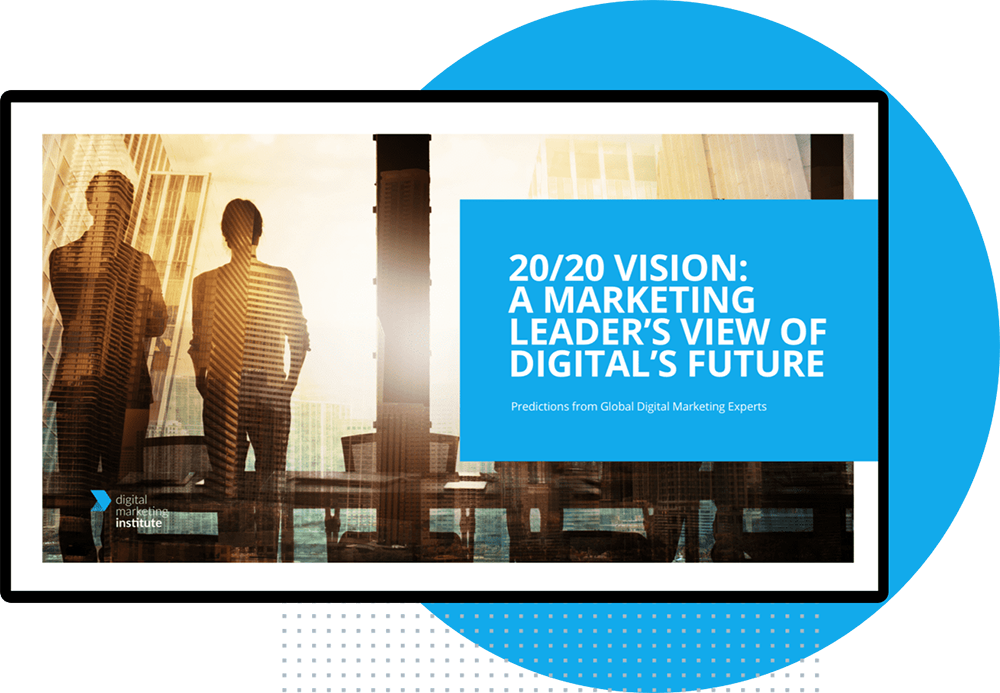Marketers are concerned about the digital skills shortage that exists and the impact this could have on the success of the companies they work for according to a new report published by the Digital Marketing Institute.
According to the research 98% of marketers believe digital marketing is important to the success of their organisations while 73% report that they are concerned about a digital skills shortage in the industry.
The report, 20/20 Vision: A Marketing Leader’s View of Digital’s Future, shares insights from a survey of more than 200 executive and senior marketing professionals worldwide about critical challenges and opportunities for marketing teams and businesses in the lead up to 2020.
Some 98% of respondents reported their digital marketing budgets increased over the last two years, with 46% of those reporting a ‘significant’ increase; and 90% expect their digital marketing budget to increase further by 2020.
In fact, digital now accounts for more than half (55%) of overall marketing budgets. When asked why this is, respondents said it was down to the ability to more accurately measure the success of digital marketing (88%), the ability to target specific audiences (88%), the ability to reach more people than traditional marketing (87%), and better return on investment (86%).
The top 3 digital channels that marketing leaders identified as ‘Highly Effective’ in their current marketing strategies are mobile (81%), email (78%) and paid social advertising (78%).
Following this was online marketplace selling (78%), Apps (78%), Video (78%), display advertising (77%), paid search advertising (74%), organic social (70%), content marketing (69%), SEO (68%), and voucher systems (65%) .
So it’s no surprise that mobile is flagged as the top digital channel to receive a budget increase by 2020, with 78% reporting they plan to increase mobile marketing budgets by 2020 – 38% significantly so. Online advertising will also reportedly get a boost in budget by 2020, with 68% planning to increase paid social budgets, and 70% planning to increase paid search.
The emerging technologies identified by leading marketers as becoming the most important by 2020 were artificial intelligence, app technology and social customer service.
Some 70% of respondents report struggling with the evolving digital landscape and voiced concerns about how their departments and businesses can keep up. Organisations fear losing out on revenue and market share to competitors who are further along in digital transformation and are creating a better user experience and customer journey through the use of digital technologies.
The channels for which marketing teams are currently experiencing the greatest skills gaps within their organisations and thus enlisting help from external digital specialist agencies (either fully managing or supporting in-house managers) are paid social media advertising (71%), paid search advertising (69%), marketplace selling (e.g. Amazon) (71%), and SEO (65%).
The areas where they anticipated the greatest challenges by 2020 will be keeping up with the pace of technological change (54%); creating engaging digital content to contend with increasing noise from other brands (49%); and recruiting the right talent (53%).
They revealed that as digital technologies continue to evolve, the knowledge and capabilities of employees lags behind, leaving many organisations playing catch up. To address this skill shortage, 82% of respondents indicated that their organisation needs to invest more in staff training and development to upskill and reskill their marketing teams to remain competitive. This training needs to address not only gaps in technical skills, but also business skills including strategy and planning, analytics, research and leadership.
“As digital technologies rapidly transform business, marketers are recognising the need to invest more resources in training and closing skills gaps. There is an urgency to cultivate a talent pool that possesses the skills necessary to help their organisations remain competitive and relevant in the digital economy,” said Ken Fitzpatrick, CEO of the Digital Marketing Institute.





















